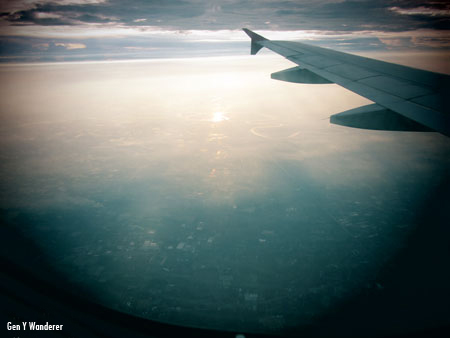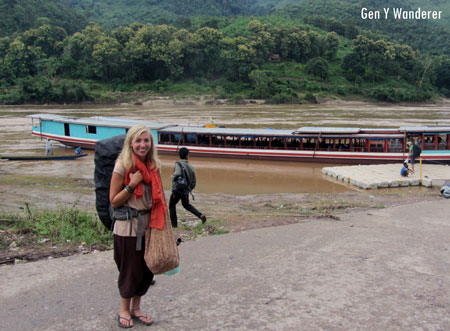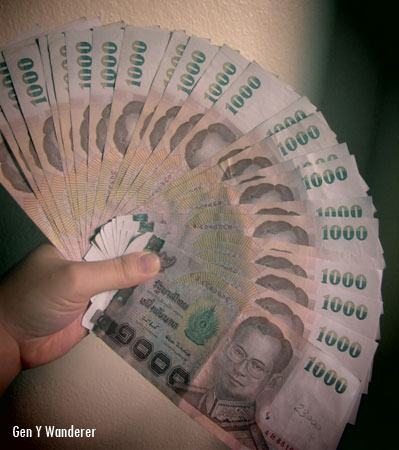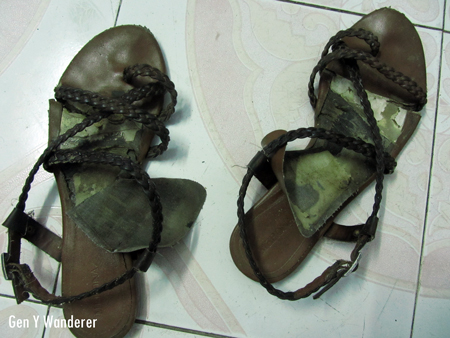There’s no way around it – you need time and money for travel.
When it comes to the ‘best’ time in your life to travel, it seems that when you’re younger, and have more time/less long-term responsibilities, you also have less income/savings. However, when you’re older, you may have more money, but probably less free and flexible time due to career/family obligations (and pets, and keeping a house, and mortgages…). Neither scenario really lines up to be conducive for travel – especially long term.

However, I think it’s easier to deal with the money issues than the time constraints – you can think of plenty of ways to save or make more money, but you can’t as easily control how much time you have.
I’ve now been living and traveling (including two long and pricey round-trip flights between Seattle and Bangkok) in Southeast Asia for the past two years…and still have savings.
Before I left home, I lived with my parents and worked full time for more than two years practically hoarding all the money I earned. I could have moved into Seattle, where I was working, and even could have lived alone in the city with what I was making, but I know that every time I paid a rent check I’d be thinking, “There’s a plane ticket…there’s another plane ticket…”. I was fortunate to graduate university without any student loans, which is something that often weighs on twenty-somethings thinking about traveling long term, but I also worked through college and never racked up any credit card debt, always living within my means.
While working and living at home, I was conscious of not spending too much money on happy hours, dinners out, new clothes, etc. – the things that many girls my age were spending their earnings on, and things that I ultimately didn’t (and don’t) need. When cutting out things you may normally spend on, it’s good to keep in mind why you’re not paying for something now – how is it going to help you in the future? For me, I knew that in Southeast Asia I could get full meals for around $1 and lodging for as little as $3-5 a night. That made it easier to forgo on little splurges, or things that I may have wanted but did not need, knowing that my money would go so much further later on – I wanted to use my money for travel. Period.
Once I was in Thailand, taking my TEFL course, I was even more frugal – usually not spending more than $5 a day (not including my course fees and lodging) because I didn’t know when my next paycheck would be coming. I had enough saved up to live and travel off of for several months, but I wanted to make that money last as long as possible. I walked everywhere I could, ate cheaply and mainly just soaked up the city instead of paying for outings or activities. Thailand has a low cost of living, and in the north, in Chiang Mai, it’s even lower, so it was easy to get by on very little. After my course I backpacked for two and half months throughout India, Vietnam, Cambodia and Laos. All highly affordable places (coming from a Western salary) but still a good chunk of time to be on the move and constantly paying for things.

Immediately after finishing my journey, I went back to Chiang Mai and found a job, house and motorbike within a month – taking care of my basic necessities and greatly cutting down on accommodation and transportation costs – then started working 50+ hours a week. I worked full-time at a high school while doing evening and weekend classes at a language school and some extra, private lessons. You don’t make a lot of money teaching in Thailand, but you make enough to live on. I worked a little extra to make a little extra and start building up that money stash I used while backpacking.
 Cash for buying my motorbike
Cash for buying my motorbike
Living in Thailand, I didn’t pay for an expensive phone or data plan, I didn’t have to make car payments or many other monthly payments besides rent and utilities, and (for the most part) didn’t buy things that I didn’t really need. The few new clothes I bought were mainly for work and I slowly wore my way through clothes and shoes that I originally brought with me from home instead of buying new ones. I also tried to not eat at the restaurants geared toward foreigners, refilled my main source of water instead of always buying new bottles, and cleaned my house myself (many expats in Thailand have house cleaners that come in). I thought of every single baht as having value – because it did – and not just being a couple bucks thrown about here or there.
 Another pair bites the dust
Another pair bites the dust
In the end, it comes down to priorities – if you want to travel you will find the money to do it. This will mean changing some spending habits and making an effort to boost your savings, but in the end it’s so worth it.
How have you saved to travel? Do you like to save for long-term journeys or prefer shorter trips?